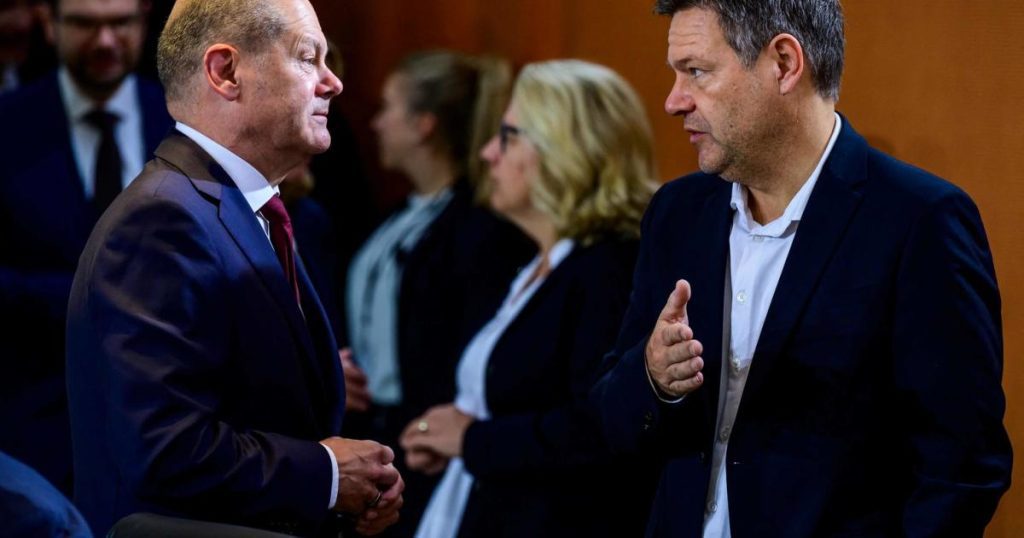The German government has given the green light to the Chinese state-owned company Cosco to enter the port of Hamburg. A similar decision was made at a cabinet meeting on Wednesday, the Ministry of Economic Affairs announced. The shipping company must therefore be allowed to acquire a maximum of 24.9 percent of the container terminal in Tollerort.
controversial decision
Originally, a 35 percent entry was planned. However, the deal between HHLA and Cosco in Hamburg caused sharp criticism. According to AFP information, six specialized ministries under the leadership of the Federal Ministry of Economy and Technology participated in the examination of the deal and all spoke out against Chinese participation.
“Partial ban”
However, the German Federal Chancellor rejected the takeover ban and a government decision on a complete ban cannot be passed through the ministries. Without an agreement, the deal’s objection period would have expired next Monday, and it could have been approved in its original form. Then Cosco was allowed to get more than 35 percent.
The Ministry of Economic Affairs recently said that a “partial ban” on the business had been accepted as an emergency solution that would allow Cosco to own a maximum stake of 24.9 percent in the terminal. This “prevents strategy sharing”.
Internal criticism of the decision
The promise of limited access within the government is also now criticized. “The acquisition of shares in the container terminal in Tollerort by Chinese state shipping company Cosco disproportionately expands China’s strategic impact on German and European transport infrastructure as well as Germany’s dependence on China,” according to a note available to Reuters news agency. issued by the German Foreign Ministry on Wednesday.
According to information from government departments, the FDP-led ministries and the Ministry of Economic Affairs also ratified the memorandum. They were unable to prevent entry because the established limit of 24.9 per cent instead of the planned 35 per cent falls below the consent limit.
However, COSCO’s participation threatens the success of the European project of the Trans-European Transport Network TEN-T, in which the port of Hamburg plays a special role. “On behalf of the German Foreign Office, I expressly refer to the significant risks that arise when elements of the European transport infrastructure are affected and controlled by China – while China itself does not allow Germany to participate in Chinese ports,” the memorandum reads, whose Secretary of State for Europe Anna Luhrmann made the oath to cabinet meeting.
geopolitical influence
China has already clearly demonstrated its willingness to use economic measures to achieve political goals. In this regard, the acquisition of the container terminal has not only an economic component, but above all a geopolitical component. Take ownership of the station itself.
The German Foreign Ministry criticizes that in the event of a crisis, the acquisition of China will open up the possibility of exploiting part of the vital infrastructure of Germany and Europe politically. This would affect supply chains and supply security. Also referred to as “harassment” by Western partners.
Cosco should not be granted any crypto rights to influence business and financial decisions. But the Ministry of Economic Affairs indicated in a statement that this is exactly what was excluded by the partial ban and the ban on private rights in the case of participation.
Scholz rejects criticism
Schulz dismissed the criticism. A spokeswoman for the German chancellor calmed down that it was not about the entire port, but about the station. As a result, the Chinese company has no strategic influence, and the 24.9 percent stake does not lead to any dependency, the spokeswoman said.
A State Department spokeswoman said the department, like other departments, had made the concerns clear in the discussions. All formal possibilities were used, as well as in the form of a protocol note.
A spokeswoman for the Ministry of the Interior: “The decision of the Council of Ministers allayed fears.” A spokeswoman for the Ministry of Economic Affairs said the Cabinet had taken a decision. It was important for the ministry to ban the “special rights” of the Chinese company.

“Food practitioner. Bacon guru. Infuriatingly humble zombie enthusiast. Total student.”








More Stories
Kyiv: Russian Kursk offensive halted
US Presidential Election: Former US Government Officials Warn Against Donald Trump's Election
Netherlands wants to leave asylum system